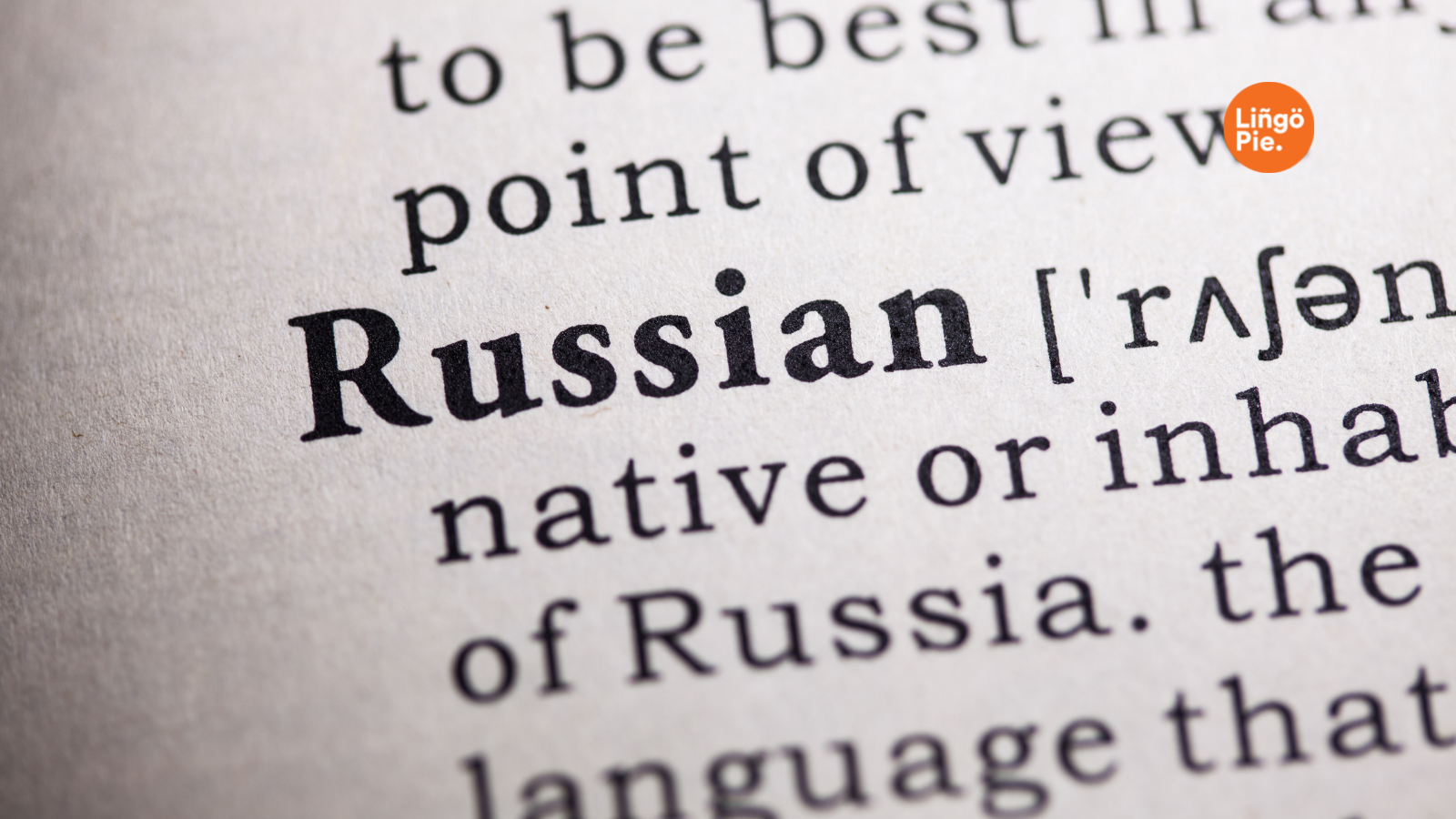You don't need us to tell you that learning a new language can change your life dramatically for the better. But with a plethora of options, which language should you learn first, and why?
To help you out, our team went deep down the multilingual rabbit hole, analyzing 4000+ job postings across LinkedIn Jobs that explicitly demanded "bilingual" aptitude.
Our mission? Determine the 10 most useful languages to learn!
By dissecting real job listings from corporations, startups, agencies, and everything in between, we could decipher which languages currently hold the most professional capital on the continent. From customer-facing roles to backroom operational positions, we identified the in-demand tongues that propel candidates to the top of the talent pool.
Key Takeaways
- French is the most marketable language, with 1,910 recent job postings explicitly seeking French language proficiency.
- Italian is surprisingly in demand, with 278 recent job postings heavily concentrated in customer service and client-facing roles for major tech brands.
- Spanish ranks second, with almost 1,000 job postings (928) specifically looking for Spanish speakers. These roles span various fields like copyediting, customer service, insurance, UX writing, teaching, and business analysis.
Most Useful Languages In Europe To Learn
1. Spanish

Spanish, a language of passion and beauty, is not only a widely spoken language but also an official language in over 20 countries. With approximately 460 million native speakers and millions more learners, Spanish ranks as the world's second-most-spoken language, making it an invaluable asset.
So is learning Spanish a viable option for your career? When we looked at 4,000 different job postings, almost 1,000 of them (928 to be exact) were specifically looking for people who could speak Spanish.
These roles spanned copyediting, customer service, insurance, UX writing, teaching, business analysis, and more. Notably, most positions were full-time rather than freelance gigs. While some freelance roles start around $5 per hour (for total beginners), full-time professional jobs likely offer higher compensation.
2. French

French, often dubbed the "language of diplomacy," is a jewel in the crown of languages to learn. As one of the most widely spoken languages worldwide, with over 300 million speakers, it's not only a linguistic treasure but also an essential tool for international relations.
When it comes to valuable linguistic skills, French is a true gem in the employment market. Our analysis uncovered a staggering 1,910 recent job postings explicitly seeking French language proficiency.
Unlike the more customer service-oriented roles for Spanish speakers, French opens doors to product and management positions. Companies are ravenous for French talent to fill roles like Quality Assurance Specialists, Product Owners, Team Leads, Account Managers, and even high-end fields like consulting and hospitality.
The opportunities aren't limited to startups either. Renowned corporations like Teletech, Chubb, and language learning giant Busuu are all actively recruiting French speakers for their ranks. Landing one of these gigs means joining the world-class talent at a globally respected company.
Belonging to the same language family as Spanish and Italian, learning French definitely offers a gateway to more opportunities overseas.
3. German

While German may not be as widely spoken as Spanish, proficiency in it can open doors to some seriously impressive job opportunities. Our research uncovered 58 recent postings explicitly seeking German speakers - and they weren't your run-of-the-mill roles.
Major global players like logistics giant Hermes, AI translation leader DeepL, cybersecurity firm DigiCert, and customer experience company ResultsCX are all actively recruiting German talent. Landing one of these gigs means joining the ranks at a respected international brand.
What's more, the overwhelming majority are full-time positions rather than freelance or part-time work. German fluency is a highly marketable skill that top employers value enough to bring on board as a crucial part of their permanent teams.
From the way we see it, serious professions should consider learning German not only unlocks access to the heart of Europe, within the European Union, but also to strengthen their applications in the future.
4. Italian

While not as widely spoken as Spanish or French, Italian is a surprisingly hot commodity in the job market right now. Our research uncovered 278 recent postings specifically seeking Italian language skills.
The opportunities are heavily concentrated in customer service and client-facing roles. Major tech brands like TikTok and LinkedIn are urgently hiring Italian speakers to act as user support associates, enterprise relationship managers, and more.
For those looking to deploy their language skills in a public-facing position, learning Italian is an incredibly marketable asset. Companies need multilingual representatives who can provide the personalized, culturally-nuanced experience that delights their Italian customer base.
Related:


5. Russian

Russian, often overshadowed by current events and wars, is a language and culture brimming with depth and history. It is an East Slavic language of the wider Indo-European family. And, with over 258 million speakers, it's the third most spoken language globally which is why Learning Russian is a sensible strategic move.
We uncovered about 50 job postings seeking Russian speakers for creative and customer service roles. Companies like AI translation leader DeepL are hiring for roles like Linguistic Editor. Others like TaskUs and Teleperformance have openings for Russian content moderators and reviewers.
Related:

6. Greek

While Greek may not be considered a globally dominant language, our research shows it's an extremely valuable skill for creative and customer service roles.
Companies like Teleperformance and TeleTech are actively hiring Greek speakers for positions interfacing with Greek customers and audiences. Having native-level fluency is crucial for providing the localized experience and cultural nuance these roles demand.
On the creative side, Greek proficiency opens doors to gigs like copywriting, translation, content creation, and more. Companies need linguists who can adapt their messaging and materials to properly resonate with Greek-speaking markets.
7. Serbian

Serbian, nestled in the heart of the Balkans, offers more than just vibrant nightlife and a rich culture. While it's considered one of the more challenging languages to learn, the reward is immense.
Once you've mastered Serbian, you gain an incredible linguistic advantage. Serbian, Croatian, Bosnian, and Montenegrin are mutually intelligible, often referred to as "Serbo-Croatian." In fact, they share a common history and linguistic base, making it possible to understand and communicate across these languages.
When it comes to unlocking career opportunities in tech, Serbian is an unexpectedly valuable language skill to have. Our research uncovered about 180 job postings seeking Serbian speakers for roles like web specialists, coders, and other technical positions.
8. Hungarian

Hungarian, a Finno-Ugric language, is spoken by roughly 10 million people primarily in Hungary and parts of neighboring countries. While not among the most widely spoken languages, it holds cultural significance and offers unique advantages.
Learning Hungarian grants you access to the rich cultural heritage of Hungary, renowned for its history, music, and cuisine. It's a language deeply rooted in European history and a valuable asset for anyone interested in exploring Central Europe.
For those looking to apply their language skills in creative roles, Hungarian is an extremely valuable asset to have. Our research uncovered 116 opportunities for Hungarian speakers in fields like localization, linguistics, copywriting, and translation.
9. Portuguese

Learning Portuguese is a gateway to a world of captivating cultural diversity, rich history, and global connections. Spoken by over 260 million people, it's your portal to the vibrant Lusophone culture.
While Portuguese may not be the first language that comes to mind for professional opportunities, our research shows it's an extremely valuable skill - especially in content and technical fields.
On the content side, we found about 200 postings seeking Portuguese speakers for roles like copywriters, translators, content creators, and more. Companies need talented linguists who can adapt their messaging and materials to properly engage Portuguese-speaking audiences worldwide.
But Portuguese fluency isn't just limited to creative roles. The tech world also has a huge demand for professionals who can combine coding abilities with native-level Portuguese skills. We saw openings for positions like software developers, solutions engineers, and account executives requiring this language expertise.
For technical roles, Portuguese gives you a huge competitive advantage. You become the invaluable bridge allowing companies to build seamless products and provide standout support for Portuguese-speaking markets across regions like Brazil, Portugal, Africa and beyond.
10. English

We weren't even sure if we should include this language. We wanted to delve into the beauty of Slavic languages, but the truth is, that the most important one you need is to start learning English.
With English as the lingua franca of the internet and global business, companies are desperate for professionals who can create high-quality, nuanced content that connects with English-speaking audiences worldwide.
For those looking to build a career in content marketing, advertising, branding, or any role involving communication strategy, English fluency is an absolute must. You need mastery of the language to craft messaging that informs, engages, and converts.
But the possibilities extend far beyond just content creation. English skills also open doors to growth opportunities in areas like:
- Content Strategy
- Marketing Management
- Brand Consulting
- Market Research
- Customer Experience
FAQs: The Most Useful Languages to Learn in Europe
In this section, we provide answers to frequently asked questions relating to the most useful languages to learn in Europe.
What language would be most beneficial to learn?
The most beneficial language to learn depends on your goals. English is globally significant, while languages like Spanish, Mandarin Chinese, French, and German are valuable for different reasons.
What are the top 5 learned languages?
The top 5 learned languages are English, Spanish, Mandarin Chinese, French, and Arabic due to their global importance in business, culture, and diplomacy.
Which language will dominate in 2050?
It's anticipated that Mandarin Chinese will dominate in 2050 due to China's economic growth, but English will continue to be a global lingua franca.
Which language is most demanding in the world?
Among the most demanding languages in the world, Arabic, Mandarin Chinese, Japanese, and Russian are often considered challenging due to complex scripts, grammar, and pronunciation.
Summing Up: The Most Useful European Languages to Learn in Europe
From the widely spoken Spanish to the intricacies of Russian, each language listed in this guide provides unique insights into European cultures, international business, and global diplomacy.
While Slavic languages possess their allure, the undeniable truth persists: English stands as the paramount global language, fostering connections among people, nations, and ideas worldwide.
Whether your aim is to explore Europe's cultural heritage sites, excel in European international relations, or thrive in the European business world, these languages serve as powerful tools for unlocking European opportunities.
Embrace the challenge, embark on your European linguistic journey, and discover the boundless horizons that await in this ever-evolving, interconnected continent.


![10 Most Useful Languages In Europe For Work [2025 Study]](/blog/content/images/size/w1200/2024/06/10-Most-Useful-Languages-In-Europe-For-Work.jpg)


![How to Learn French Fast [Guide]](/blog/content/images/2024/06/Spanish-1-6.png)

![5 Official Spanish Language Tests To Show Your Proficiency Level [Guide]](/blog/content/images/size/w300/2025/06/Spanish-Language-Tests.jpg)
![Why Memorizing Spanish Words Won’t Make You Fluent [Tips]](/blog/content/images/size/w300/2025/06/how-to-practice-spanish-vocabulary.jpg)
![How to Improve Your Polish Conversation Skills [5 Best Tips]](/blog/content/images/size/w300/2025/06/improve-polish-conversation-skills.jpg)
